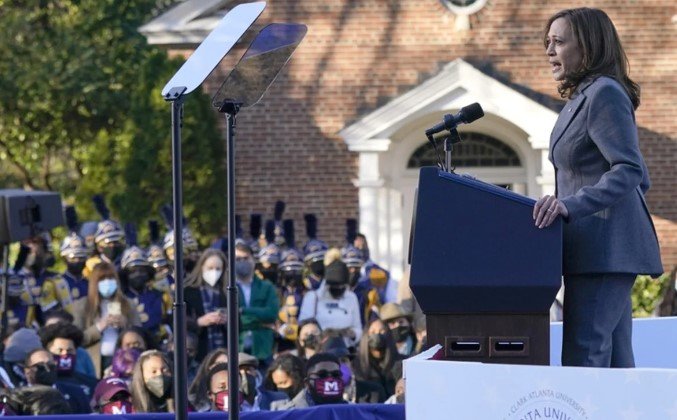As the clock ticks down to a crucial election, the atmosphere in Tbilisi is electric. Thousands gathered in Liberty Square, where Bidzina Ivanishvili, the founder of the ruling Georgian Dream party, delivered a passionate speech. With just three days until voters head to the polls, Ivanishvili emphasized a message of peace, stating, “we choose peace, not war.” This election is being framed as a defining moment for Georgia, with the stakes higher than ever.
A Show of Strength in Liberty Square
The rally on Tuesday was a strategic move for Georgian Dream, showcasing their support just days before the election. Supporters waved flags and chanted slogans, creating a vibrant scene filled with energy. Ivanishvili, who has been a dominant figure in Georgian politics for over a decade, addressed the crowd from behind protective glass, a symbol of the tensions surrounding this election.
- Key points from the rally:
- Ivanishvili’s call for a “dignified European future.”
- Accusations against opposition parties for wanting to drag Georgia into the Ukraine conflict.
- The party’s insistence on their commitment to EU membership by 2030.
The atmosphere was markedly different from the previous Sunday when opposition parties filled the same square, waving Georgian and EU flags. This stark contrast highlights the polarized political landscape in Georgia, where the choice between the ruling party and the opposition is seen as a choice between aligning with Russia or Europe.

The Opposition’s Challenge
The opposition is not backing down, presenting a united front against Georgian Dream. They argue that the ruling party has undermined Georgia’s aspirations for EU membership, a sentiment echoed by many citizens. Polls suggest that while Georgian Dream may still hold a lead, the combined strength of the opposition could pose a significant threat.
- Opposition’s key arguments:
- Claims of government sabotage against EU integration.
- Accusations of intimidation tactics against voters.
- A strong desire among citizens for a European future.
The opposition’s message resonates particularly in urban areas, where younger voters are eager for change. However, in rural regions, the narrative shifts. Many voters express a preference for stability over the unknown, often citing memories of past conflicts as a reason to support the current government.
Concerns Over Election Fairness
As the election approaches, concerns about the integrity of the voting process have surfaced. Reports indicate that public servants and other employees are facing pressure to vote for the ruling party. This intimidation is particularly pronounced in smaller communities, where personal relationships can influence political choices.
- Instances of reported intimidation include:
- Threats of job loss for dissenting votes.
- Public pressure to conform to the ruling party’s expectations.
- A culture of fear that stifles open political discourse.
Vano Chkhikvadze, an EU Integration Program Manager, highlighted the challenges faced by voters in these environments. “They’re threatened that they might lose their job… saying everybody will find out who voted for whom,” he noted. This atmosphere of fear raises questions about the fairness of the upcoming election and the true will of the Georgian people.
The Road Ahead for Georgia
With the election looming, the future of Georgia hangs in the balance. The ruling party’s message of peace contrasts sharply with the opposition’s call for change and alignment with Europe. As citizens prepare to cast their votes, the implications of their choices will resonate far beyond the immediate political landscape.
- Factors influencing voter decisions:
- Historical context of the 2008 war with Russia.
- The desire for EU integration versus fear of instability.
- The impact of local dynamics on political affiliations.
As the nation stands at this crossroads, the outcome of the election will shape Georgia’s trajectory for years to come. The voices of the people, whether in support of the ruling party or the opposition, will ultimately determine the path forward.
